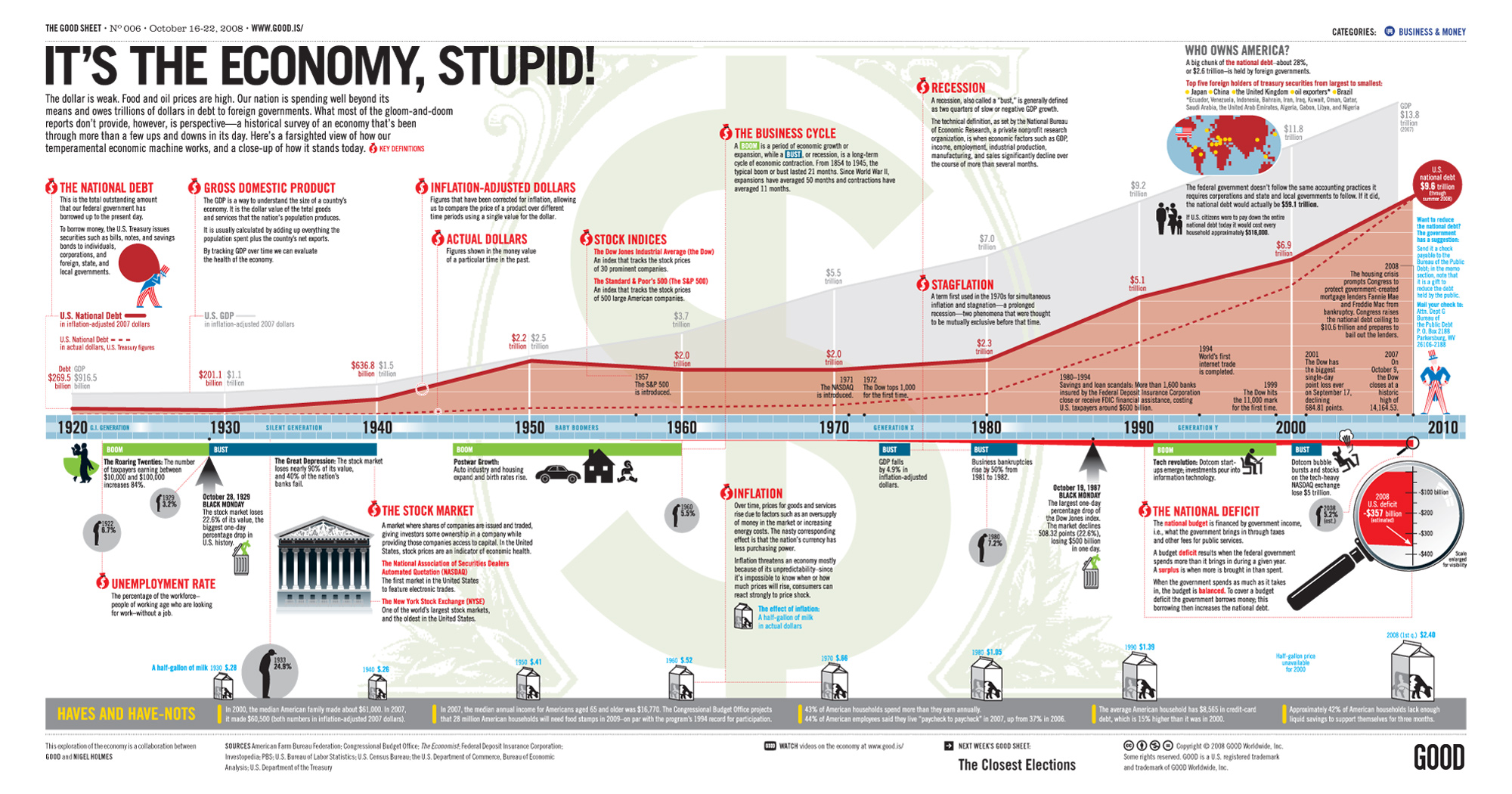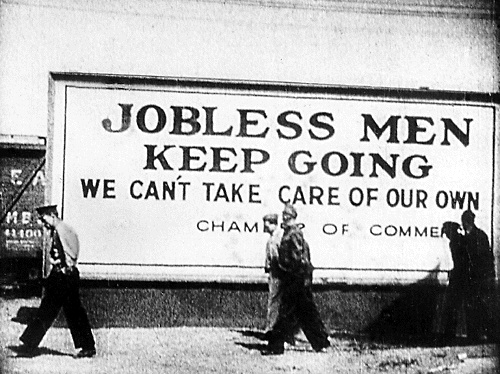Internalize Radical Economic and Social Change
The American economy has shifted over time from agricultural, to industrial, to post-industrial. These changes resemble slow drifting tectonic plates (macro trends), but are scarred by periodic spikes that become massive mountains and deep ocean rifts of economic and social upheaval. The labor skills in greatest demand have changed drastically, leaving large segments of society without jobs that draw out their greatest gifts. It's incredibly hard for folks who've spent their lives mastering specific challenges to relearn a new high demand trade, but survival is an unmatched motivator.
I've gone through a drastic change in applied skills over the past year. My background in science* has undergone a metamorphosis into new skills in web publishing, marketing, and web application development. I chose to do this because of my enthusiasm for open information exchange, and an unquenchable desire to find untapped value in open data. In contrast, collaboration is a four letter word in many shrinking markets. I haven't finished crossing the chasm professionally, but at least I can see a ray of hope. I'm now able to rapidly understand and help build interactive web applications with my new skills. Growing an application of significant social value is one of my driving goals. My professional life mirrors some of the macro changes within the US economy, as many larger industrial era businesses are forced to shrink and embrace the network economy.
Pseudo Capitalism
Our nation is founded on economic principles which foster competitive change without heavy intervention from the government. The competition for market domination by businesses, mimics natural competition for limited resources. Like nature, markets evolve over time giving way to disruptive forces.
The most powerful counter force to full commoditization of labor is worker mobility^. Businesses compete for the most capable employees by offering inspiring corporate culture, partial ownership (equity), salaries that remove financial friction, and generous benefits. A direct connection between worker effort and observing the effect of their labor on the bottom line, is key to business success. Top down hierarchies suffer from a lack of push back on assumptions. The more empowered each employee is, the faster the business can adapt to opportunities in a shifting market.
There's a powerful connection from government capital to social/infrastructure investment. American capitalism drifted over time to mix in strong government influence over finance:
- tariffs
- taxes
- Federal Banks
- heavy financial legislation
Federal, state, and local government spending supports:
- education
- government employees
- infrastructure & social programs
- defense industry
I'll leave off this riff with a great historic image of the US economy from the 1920s to 2008.
 This timeline come's from GOOD (Oct, 2008)
This timeline come's from GOOD (Oct, 2008)
Notes:
* = My education is in physics (BS) and engineering (MSEE) followed by fourteen years of simulations and algorithm development.
^= "The most powerful counter force to full commoditization of labor is worker mobility". This mirrors the most potent counter force to full centralized control of the social web, data and service mobility.

